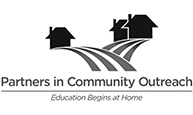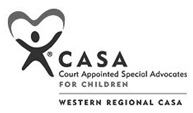Our History

The TEAM for West Virginia Children is a charitable organization founded in 1986. Originally formed by the Junior League of Huntington as a task force on child abuse, TEAM has undertaken various responsibilities, including networking, community education, victim advocacy, family support, community team building, and public policy advocacy.
- In 1984, TEAM decided to focus its efforts on the prevention of child abuse through educational workshops in the schools, initiating the Child Assault Prevention (CAP) Project in Cabell County elementary schools.
- In 1986, TEAM was incorporated as the Cabell County Child Protection Team and continued to train volunteers to provide the CAP workshops in area schools.
- In 1987, TEAM became affiliated with Prevent Child Abuse America as a local chapter.
- In 1991, TEAM joined the National CASA Association and piloted the state’s first Court Appointed Special Advocate (CASA) project in Cabell County courts. Western Regional CASA has since expanded to provide CASA advocacy in Wayne, Lincoln, Putnam, Boone, Kanawha, Jackson, Roane, Calhoun and Mason counties.
- In 1993, TEAM changed its name from the Cabell County Child Protection Team to the TEAM for West Virginia Children.
- In 1996, TEAM initiated the state’s first Healthy Families America project in Cabell County through the Cabell-Wayne County Family Resource Network, providing voluntary intensive home visitation services to new parents to help them get off to a good start with parenting. Healthy Families Mountain State has since expanded to provide home visiting services to families in Wayne, Mason, Lincoln, Logan, Putnam, and Kanawha counties.
- In 1999, TEAM took a leadership role in the formation of Partners in Community Outreach, supporting programs across the state that were providing in-home family education services to young families.
- In 2003, TEAM became the State Chapter with Prevent Child Abuse America known as Prevent Child Abuse West Virginia.
- In 2003, TEAM launched Partners in Prevention, a statewide network of community teams implementing various community projects with the help of mini-grants and working together to promote child well-being.
- In 2007, the first Strengthening Families project in the state was funded in Cabell County through TEAM to promote the protective factors in childcare settings. This effort eventually expanded to a statewide effort to embed the protective factors in TEAM’s various programs.
- In 2010 the educational campaign, Our Babies: Safe and Sound, was initiated to provide parents and other caregivers of infants under the age of one, as well as expectant parents and professionals, with information and tips on ways to keep babies safe while sleeping, and how to keep your cool when babies cry. The overall goal of the campaign is to help prevent West Virginia infants from injury and death.
- TEAM launched Circle of Parents in 2012, providing parent-led self-help groups, where parents and caregivers share ideas, celebrate successes and address the challenges surrounding parenting.
- In 2013 under the TEAM umbrella, the West Virginia Infant/Toddler Mental Health Association was officially formed to build and support the development of professionals to meet the needs of all West Virginia children and families. Through a nationally-recognized set of Early Childhood Mental Health Competencies, those working with and for children will use a shared framework, which focuses on relationship practices and gives a platform to address the social and emotional needs of all children.
We believe (and research backs us up) that by providing children and families with information, support, resources, and by building family-friendly communities, the rates of child maltreatment will substantially drop. TEAM for West Virginia Children works with communities and families to make the needs of children a priority. TEAM programs promote child well-being by providing parents and communities with the tools they need to make a positive difference in children’s lives.
Our work is partially funded by grants from public and private sources. In order to fully fund our programs, we rely on donations from individuals and businesses and fundraising activities.






